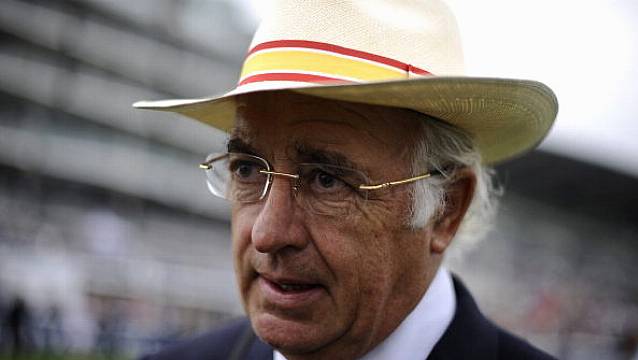A judge has said he did not believe the High Court should allow itself to be "used" by billionaire bloodstock owner John Magnier to keep certain documents secret in his row over the sale of the 751-acre Barne Estate in Clonmel, Co Tipperary.
Mr Justice Michael Twomey made the comment when he ruled Mr Magnier must release 10 documents over which the Coolmore Stud owner had claimed should not be divulged because they contained legal advice he got in relation to the sale of the property.
The judge's ruling came as part of preliminary matters in advance of the hearing of the action brought by Mr Magnier and his children, John Paul Magnier and Kate Wachman, who claim they had an agreement with the Barne owners to buy the Golden Vale estate for €15 million.
Barne Estate is held for the benefit of Richard Thomson-Moore, his sister Alexandra, their children, and their spouses by a Jersey trust.
The Magniers have sued the Barne Estate, Mr Thomson-Moore and three companies of IQEQ (Jersey) Ltd seeking that the €15 million deal to buy, which they say was struck on August 22nd this year, be completed.
The Barne defendants say there was never any such agreement, and subsequently they agreed to sell it for €22.5 million to construction magnate Maurice Regan, founder of the New York building firm JT Magen. Mr Regan is not a party to the case.
Mr Justice Twomey said John Magnier did not want to disclose the ten documents that are relevant to his claim against the defendants "presumably because he believes they will undermine his case."
However, he said, what was "most unusual about this application" is that, in order to prevent the disclosure of the documents to the defendants, Mr Magnier made a very serious claim against his current adviser, retired solicitor Eugene McCague, who was a managing partner with Arthur Cox solicitors.
Mr Magnier claims Mr McCague gave him legal advice, which is in the documents, even though Mr McCague did not have a solicitor’s practising certificate at the time, and it was a criminal offence to practise without a solicitor’s certificate, he said.
While Mr Magnier was not claiming that Mr McCague committed a criminal offence, by claiming that he gave legal advice without a practising certificate, he was, in effect, claiming that Mr McCague "could" have committed a criminal offence, he said.
Mr Magnier also claimed he believed that Mr McCague held a practising certificate when he gave the advice in question even though pretending to be a solicitor is also an offence.
It seemed clear, he said, Mr Magnier’s intention was not to allege that a criminal offence might have been committed by Mr McCague but rather to ensure the documents would not be disclosed.
It appeared to the court that all that Mr Magnier was prepared to do in support of his application was to make a "claim" that legal advice was given by Mr McCague and a “claim” that he believed he had a certificate.
"He is not willing to provide evidence, which he could easily have provided, to show that the documents did or did not contain legal advice.
Mr Magnier went to certain lengths to support his claims about Mr McCague, but without providing evidence which might implicate Mr McCague and even went to the trouble of having an affidavit sworn that Mr McCague remains Mr Magnier’s “longstanding and valued advisor,” he said.
It was important to point out that no criticism is made of Mr Magnier, or of Mr McCague, for how this application was made, as that is Mr Magnier's prerogative, he said. However, it was a different matter entirely how the court should treat his application.

The reasons these are "unsubstantiated claims" is because Mr. Magnier, for tactical or other reasons, is unwilling to provide evidence which would support or disprove those claims, even though the evidence is available to Mr Magnier, he said.
Mr Magnier had also not asked the court to review the documents to see if they were privileged, even though he had asked the court to review other documents for the same purpose, the judge said.
While Mr Magnier was entitled, for tactical or other reasons, to make his application with whatever evidence he chooses, "this is not a particularly appealing basis upon which a court would be asked to decide such a significant application".
He added: "If this court had to decide the case on this basis, this court does not believe that it should permit itself to be used in this manner".







